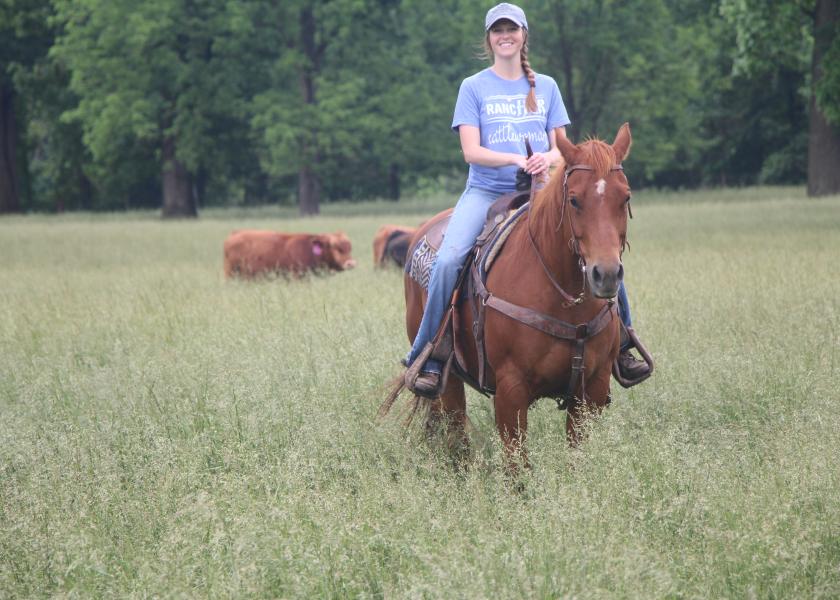Should We Stop “Educating Consumers?”

Editor's Note: The opinions expressed in this commentary are those of Brandi Buzzard Frobose, and do not necessarily represent the views of Drovers or Farm Journal.
I’ll kick-off this shindig by admitting upfront that I, Brandi Buzzard, an agriculture advocate for more than a decade, am guilty of saying “My goal is to educate consumers” in blog posts, interviews, presentations and other forms of media on several occasions.
Writing that admission made me cringe…
However, as a person who believes the words we choose truly matter, and that we should always be open to change, I think it’s time to reevaluate our goals and methods as advocates. Should our goal be to educate grocery shoppers (I don’t like the word “consumer” either, but we can talk about that later) or to have engaging conversations and create relationships with information-seeking foodies? Do you see the difference between those two objectives?
I may be alone in this, but hear me out. Have you ever been told “Let me educate you about _________?” and not been a little miffed right off the bat? I can think of a few specific instances where someone has said that to me and I immediately bristled and was hesitant to take anything “taught” to me to heart. So why should I expect the average shopper to take my words to heart when I am not taking an interest in their situation, questions or experiences?

Many years ago, a former colleague shared the importance of listening to understand versus listening to be heard. As humans, our favorite topic is, wait for it, ourselves! Many times in conversations, we are just waiting for the other person to wrap up his thoughts, so we can spill our next sentence. That’s listening to be heard – only paying attention to what someone is saying so they will listen to what you have to say.
Conversely, the flipside is listening to understand; i.e. caring what the other person says and using that information to have a meaningful conversation. For example, if someone is skeptical of my ranching lifestyle, I find it prudent to learn from where that skepticism stems. Does this person distrust beef production based on religious, health or animal welfare reasons? The origin of the concern directly effects the type of conversation we can expect to have with those seeking to learn more about agriculture.
Need your help, #AgTwitter - for those of you advocate for agriculture, when you hear the phrase "educate consumers" does it make you a cringe a bit?
Does "educate" seem condescending to anyone besides me? Not looking for an argument, just some addt'l opinions. #agchat — The Buzzard (@brandibuzzard) June 24, 2019
Social media is a magical and far-reaching tool. You can “meet” people who live 9,000 miles away, share information with them and impact each other’s lives. The opportunities for sharing agriculture’s story have never been so great but you have to be willing to care about something other than your advocacy goals in order to connect with shoppers. Remember President Theodore Roosevelt’s wise words, “People don’t care how much you know, until they know how much you care.”
Brandi Buzzard Frobose is a rancher, agriculture advocate, calf roper and the director of communications for the Red Angus Association of America.







